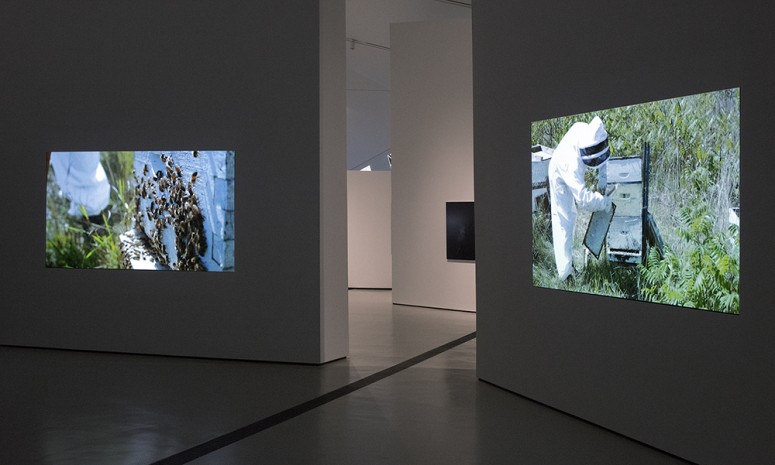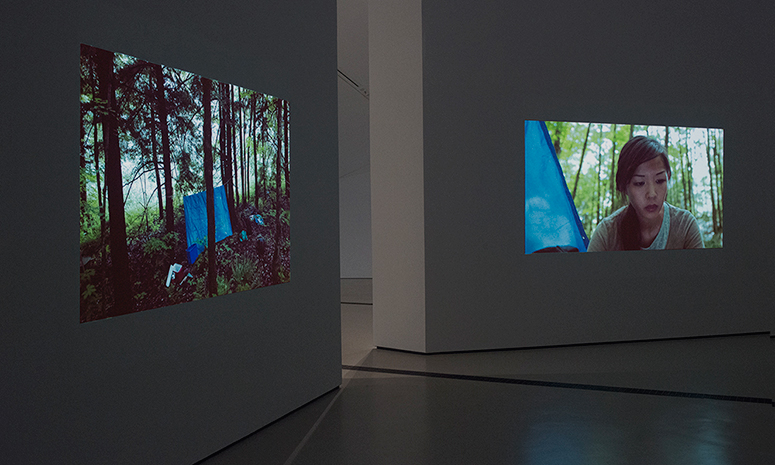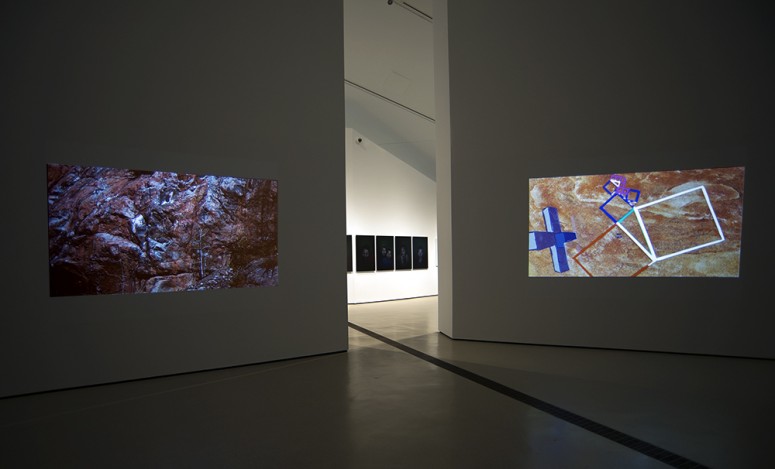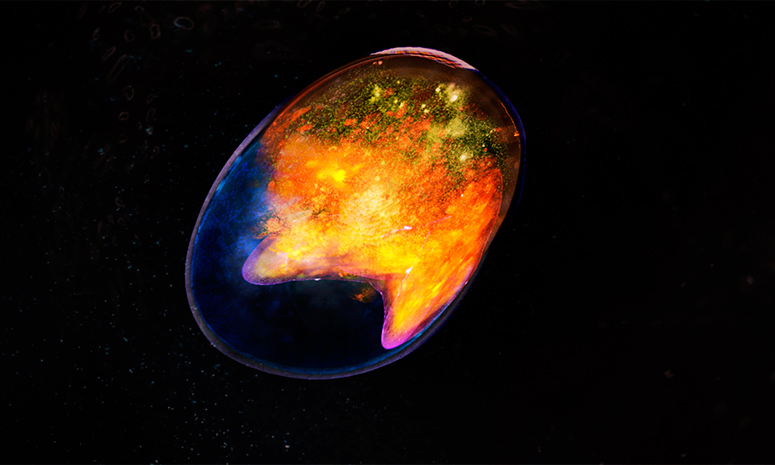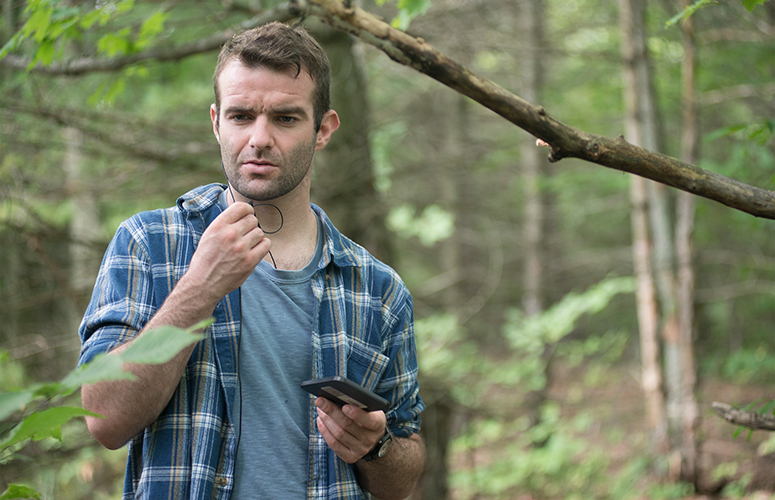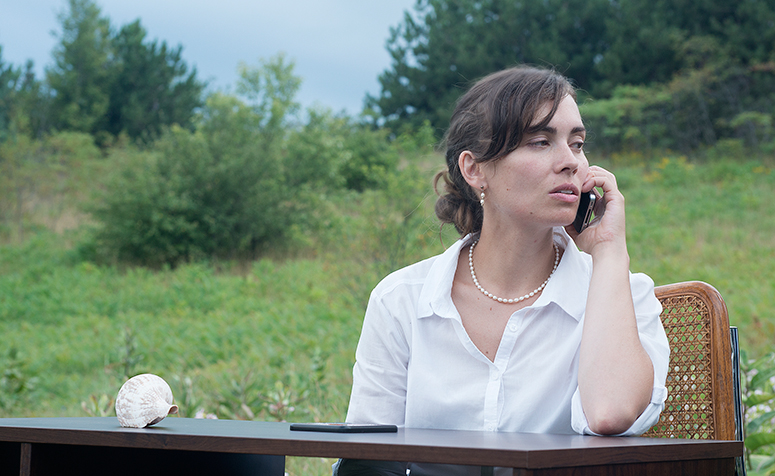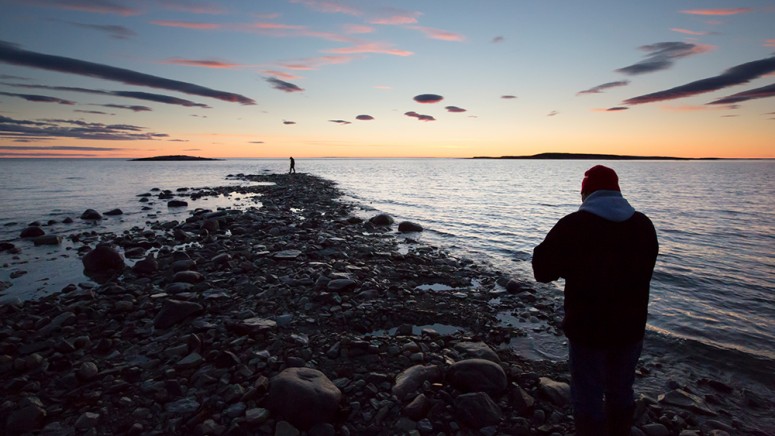Deep Time
Melanie Gilligan + Tom Ackers
Two-screen HD video installation, 2013
Roloff Beny Gallery, ROM Level 4
Deep Time, a new multi-screen work by Melanie Gilligan and Tom Ackers, blends fiction, animation, and documentary to investigate the complex relationships between systemic phenomena created by humans (such as global warming, ocean chemistry change, and capitalism) and ocean ecosystems, the often-forgotten foundation of life on this planet.
The work explores various economic practices that see the natural “wealth” of physical processes through the logic of finance. The symbiosis between human culture and the natural world is shown to be broken, with capitalist development eating away at its own material base.
Additional chapters of Deep Time are in development and will be shown as a multi-platform work in public spaces, on video billboards, and in episodes online.
Melanie Gilligan
Toronto-born Melanie Gilligan’s work incorporates a variety of media including video, performance, writing, installation, and music. Her focus in recent years has been on writing and directing narrative video works and performances, using these forms as a way to think through the themes of social and economic crisis. These works have been exhibited as installations in Canada, the USA, and Europe, and she has won several prestigious prizes for her work.
Tom Ackers
Tom Ackers is an artist and writer based in London, England. He has presented work at venues including the Hayward Gallery, Whitechapel Project Space, and Jeffrey Charles Gallery, London, and is a member of Cage, an experimental project between artists, activists, and educators based in New York’s Lower East Side.
Where Malignant Carbon Levels Intersect
Alanna Mitchell
Journalist and author of Sea Sick: The Global Ocean in Crisis
Our best guess is that the planet formed 4.5 billion years ago. Life got going in its primordial seas nearly 4 billion years ago when the atmosphere was volatile, repeatedly strafed by asteroids from space. Oxygen formed a couple of billion years later, after one-celled cyanobacteria figured out how to turn the sun’s energy into carbon-based food and body parts. Oxygen was just the belch from the meal, building up in the air as plant life exploded in the ocean and, some 470 million years ago, on land.
Anatomically modern humans came late to the party, showing up around 200,000 years ago. But it’s only in the past century that our species has really destabilized planetary systems by burning fossils of those ancient cyanobacteria and their offspring, using their carbon to change the chemistry of the air and the sea.


